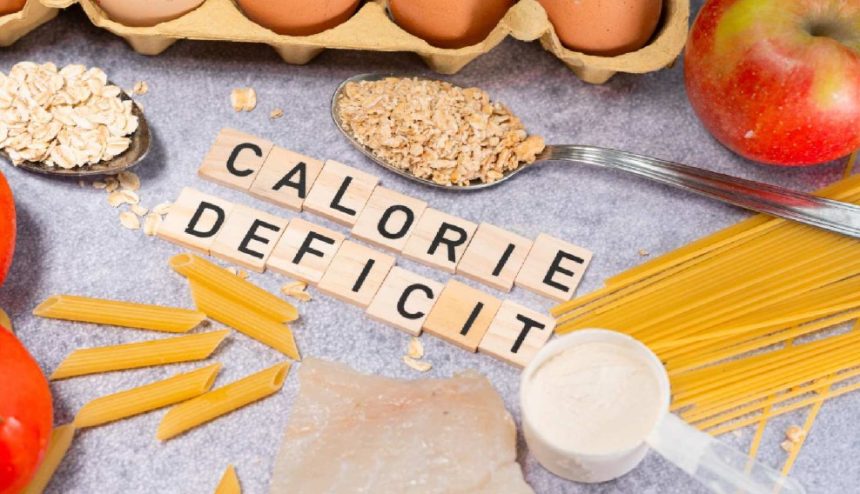A calorie deficit is when you consume fewer calories than your body burns, promoting weight loss, fat burning, and supporting a healthy metabolism naturally.
Maintaining a calorie deficit through a balanced diet and regular exercise is key for long-term weight management. It’s not just about eating less—focusing on nutrient-dense foods like vegetables, lean protein, and whole grains helps you stay full while reducing calorie intake.
Tracking your calories and activity levels helps create awareness and keeps your energy balance in check.
However, an extreme deficit can slow metabolism and lead to fatigue or nutrient deficiencies, so it’s important to lose weight gradually and sustainably.
Calories in < Calories out = Fat loss
This principle underpins almost every weight loss plan. Whether you’re following a keto diet, a high-protein diet, or intermittent fasting, you’re still aiming for a deficit.
Top 5 Free Calorie Deficit Calculator Apps in the UK
If you’re trying to lose weight, the key is simple: burn more calories than you consume. But figuring out how many calories you should eat to safely lose weight can feel like a guessing game. That’s where free calorie deficit calculators come in.
The top 5 free calorie deficit calculator apps in the UK are MyFitnessPal, Yazio, NHS Weight Loss Plan, MyNetDiary, and Cronometer, which are great for tracking intake.
1. MyNetDiary
- Best for: Complete calorie & nutrition tracking with fitness integration
- Price: Free version available; Premium from $9.99/month
- User Ratings:
- Apple App Store: 4.8 (1,17,952 reviews)
- Google Play: 4.6 (92,247 reviews)
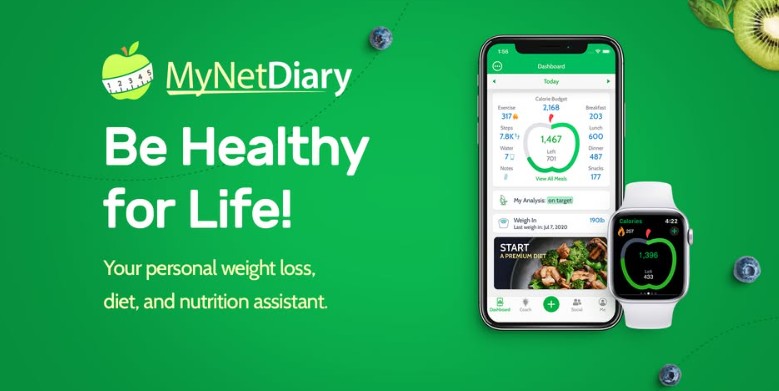
Why it stands out:
MyNetDiary combines smart calorie tracking with personalised insights to guide your weight loss journey. It calculates your Total Daily Energy Expenditure (TDEE) and adjusts your calorie deficit to match your goals.
The barcode scanner and a verified food library make meal logging fast and accurate. Plus, with macro and micronutrient tracking, you see the full picture of your nutrition intake.
Syncing with devices like Apple Watch, Fitbit, and Garmin shows your calories consumed versus burned, helping you stay on track every day.
2. Cronometer
- Best for: Detailed nutrient tracking and scientific precision
- Price: Free version; Gold plan ~$5.99/month
- User Ratings:
- Apple App Store: 4.7 (341 reviews)
- Google Play: 4.6 (45,371 reviews)
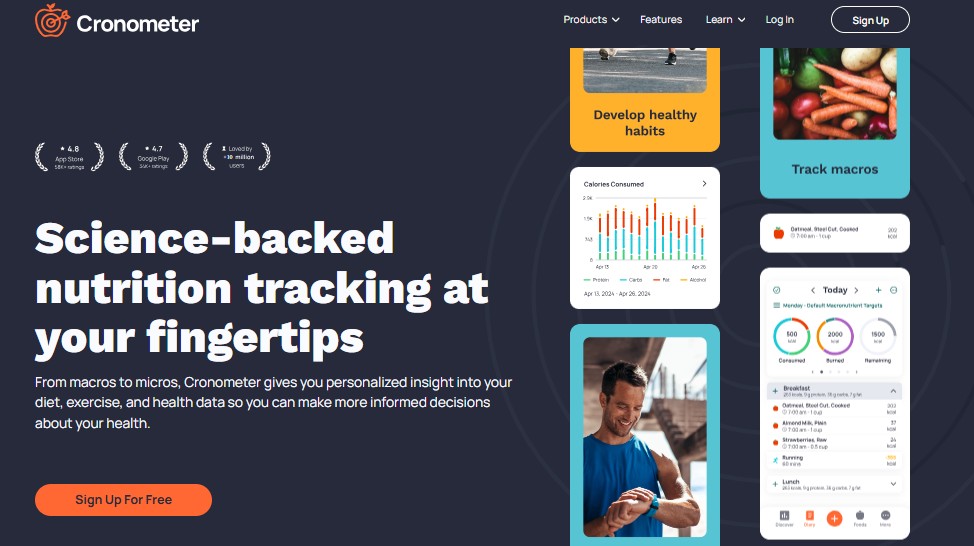
Why it stands out:
Cronometer takes tracking to the next level with an emphasis on nutrient density. Alongside calories, it logs over 80 essential micronutrients, offering insight into your diet quality.
The app uses lab-verified food data for accuracy and supports tracking biomarkers like blood sugar and blood pressure.
Ideal for those on specialized diets (keto, vegan, paleo) or managing health conditions, it also integrates intermittent fasting and detailed macro breakdowns—helping you make informed nutrition decisions.
3. MyFitnessPal
- Best for: Massive food database and strong community support
- Price: Free version; Premium at $19.99/month or $79.99/year
- User Ratings:
- Apple App Store: 4.7 (27,698 reviews)
- Google Play: 4.4 (28.4L reviews)
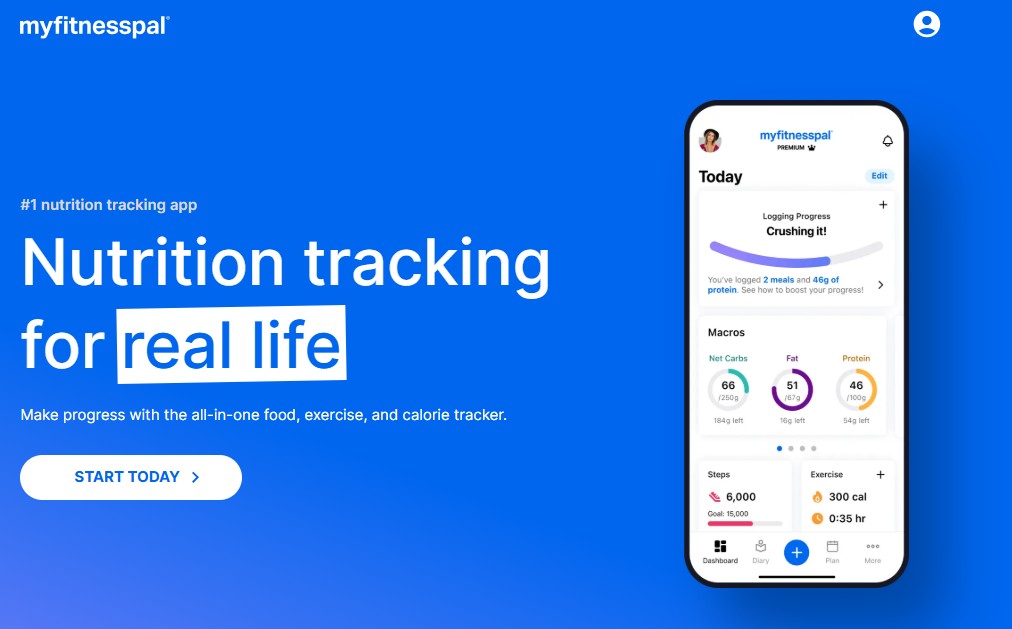
Why it stands out:
MyFitnessPal is trusted by millions thanks to its massive food and restaurant database, making meal logging simple and fast. It calculates calories in real time and adjusts your goals as you log food and exercise.
You get macro tracking, reminders, and visual charts showing progress. Integration with fitness trackers like Strava and Fitbit keeps everything synced.
The real game-changer? The active community features, such as friend challenges and progress sharing, to keep motivation high while reaching weight loss goals.
4. Yazio
- Best for: Intermittent fasting, visual macros, and sleek design
- Price: Free version; PRO plan from $9.99/month
- User Ratings:
- Apple App Store: 4.7 (39,981 reviews)
- Google Play: 4.6 (6,71,913 reviews)
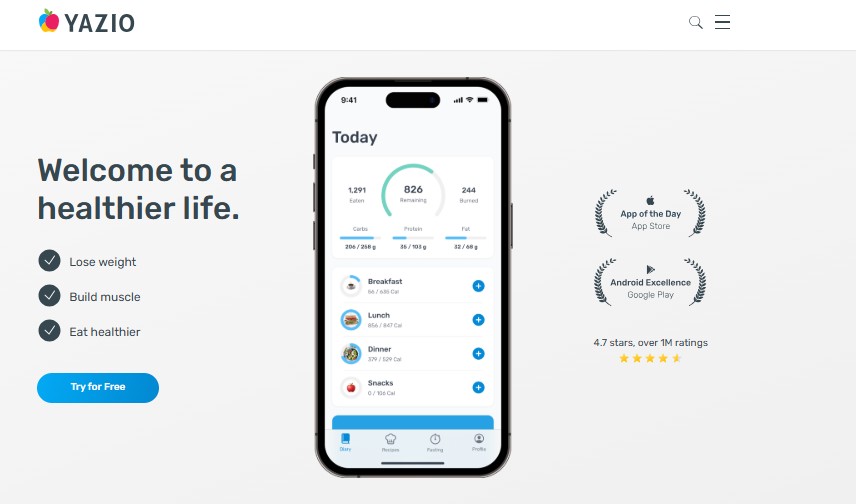
Why it stands out:
Yazio combines fasting support with nutrition tracking in a beautifully designed interface. It offers meal plans, recipes, and tools tailored to various diets—from low-carb to vegetarian.
Suppose you’re exploring fat-burning strategies that include fasting cycles. In that case, pairing this app with a supportive approach, such as GLP-1 medications, like Mounjaro, used in medical weight management, can help enhance results when supervised by healthcare professionals.
5. NHS Weight Loss Plan
- Best for: Structured, government-backed UK health guidance
- Price: 100% free
- User Ratings:
- Apple App Store (UK): 4.5 (5,266 reviews)
- Google Play (UK): 4.5 (5.3k reviews)
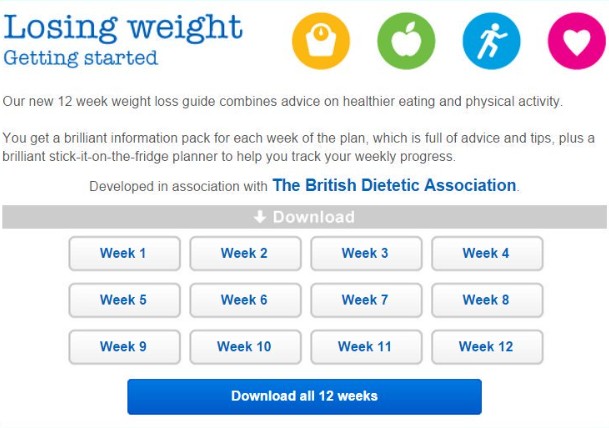
Why it stands out:
The NHS Weight Loss Plan delivers a straightforward nutrition and exercise roadmap free of charge. It offers a 12-week structured program to help you set calorie targets, monitor portions, and gradually increase physical activity.
Weekly insights, simple food swap tips, BMI tracking, and easy logging make it practical and trustworthy. Backed by the NHS, it emphasizes realistic, sustainable weight management—perfect for beginners who prefer clear, evidence-based guidance without frills.
Why Use a Calorie Deficit Calculator?
A calorie deficit calculator helps you lose weight in a smart, personalised way. Instead of guessing how much to eat, it calculates your ideal daily calorie intake based on factors like age, weight, activity level, and goals.
By creating a safe and sustainable energy deficit—burning more calories than you consume—you can steadily lose fat without extreme diets. These tools remove the guesswork, keeping your weight loss journey accurate and manageable.
Many calculators also track macronutrients (protein, carbs, fat), making it easier to build a balanced meal plan. Whether you’re following intermittent fasting, starting a new workout plan, or just trying to eat healthier, using a calorie deficit calculator keeps you informed, consistent, and on track.
FAQS
How much of a deficit should I aim for?
A moderate deficit of 500–750 calories per day is usually recommended. This typically results in 1–1.5 pounds of fat loss per week—safe and sustainable for most.
Can I use these calculators for muscle gain, too?
Yes. Many of the apps let you toggle between fat loss, maintenance, and muscle gain goals. In that case, you’d use a calorie surplus rather than a deficit.
Do calorie deficit calculators consider exercise?
Most modern tools include your activity level or sync with fitness trackers to adjust your calorie needs accordingly. Some let you manually log workouts for better accuracy.
Is it better to calculate TDEE or just count calories?
Calculating your TDEE (Total Daily Energy Expenditure) gives you a more personalised number for how many calories you burn each day, making your deficit more accurate.



